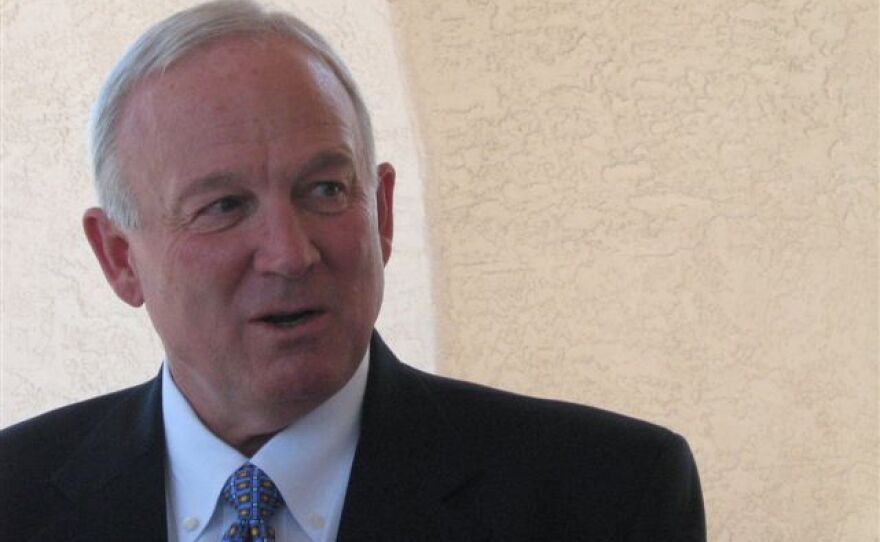Normally people can’t dictate how their tax dollars are spent. But San Diego voters may get to decide if they want to keep putting money toward the city pension system.
Hundreds of millions in taxpayer dollars are slated to go toward San Diego’s ballooning pension payments in coming years. But Mayor Jerry Sanders wants to eliminate that expense by eliminating the city’s pension system.
“We’ll go directly to the voters and place a citizen’s initiative on the ballot to end public pensions as we know them today,” he said.
Sanders said the ballot measure would give the city authority to eliminate pensions for all new hires, excluding public safety, by offering just a 401k plan. He said voters could decide the issue in the next election. He and Councilman Kevin Faulconer will lead the effort to gather signatures to place the measure on the ballot.
“The notion that all public employees should have a richer retirement benefit than the employees they serve while now also enjoying comparable pay and great job security is thoroughly outdated,” Sanders said.
The city would continue to pay pension costs for existing employees. Next’s year projected pension payment is about $230 million. City Attorney Jan Goldsmith said people want to see a change in how San Diego runs. He said Sander’s plan is doable, at least in the legal sense.
“It is something that is well with in the law,” he said. “Folks who are not hired yet by the city do not have a vested pension benefit that has already been given to existing employees and retirees. It completely eliminates that issue.”
The plan was also given qualified support from Councilman Carl DeMaio. He introduced his own plan that he says will solve the city’s structural budget deficit within five years. DeMaio said the mayor’s idea is good, but doesn’t go far enough.
“The proposal that he’s put on the table is worthy and important to implement,” DeMaio said. “But it only affects new hires. It would not produce savings for at least two years. And even then in the first five to seven years the savings would be miniscule.”
DeMaio said switching to an all-401k system won’t produce significant savings for 25 to 30 years. Still, he said Sanders’ plan was a good step forward.
But not everyone agrees with that assessment.
Labor leaders say the plan would be an extreme measure. Lorena Gonzalez, of the San Diego and Imperial Counties Labor Council, said the plan would leave city workers without a safety net. San Diego stopped paying into Social Security in the 1980’s, meaning city workers aren’t eligible to receive Social Security when they retire.
“I can’t imagine that anyone would want seniors to live with only a 401k when we saw during the recession what can happen to individual’s 401k,” she said.
Gonzalez said all Sanders’ plan does is create retirement insecurity for city workers. She said the city has already created a two-tier pension system that has been lauded as being one of the most responsible in the country. She calls Sanders’ plan extreme and questions whether it’s nothing more than a publicity stunt.
Sanders' proposal follows the rejection by San Diego voters of Proposition D, which would have raised the city's sales tax by a half-cent.
The mayor pledged to continue on anyway with the 10 fiscal and pension reforms outlined in the measure, like outsourcing certain city services and selling the Miramar Landfill.
Sanders also outlined steps to help close San Diego's projected $73 million budget deficit in the coming fiscal year, including further streamlining city government, eliminating free trash collection for homes on private streets, looking to outsource operation of city golf courses and airports and eliminating non-critical operations, such as community plan updates.






